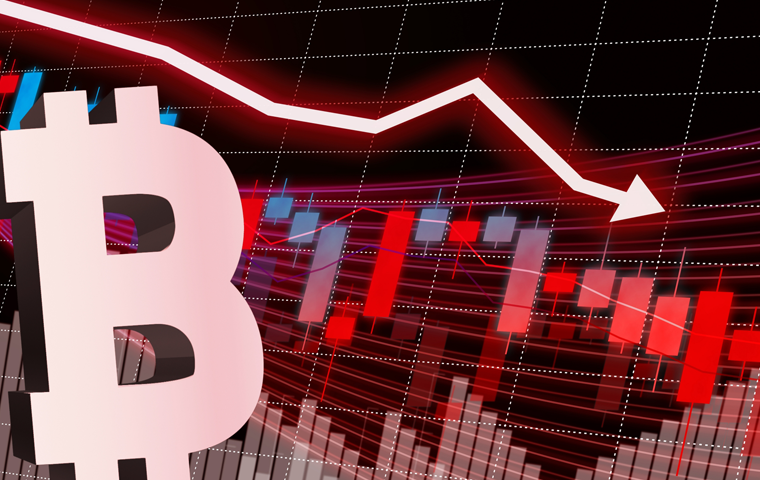Bidding Farewell to Free Hong Kong
Related Articles

When the national security law for Hong Kong went into effect on June 30, 2020, I contributed a piece in the December 2020 issue of the “Seiron” magazine. Hong Kong used to be the hub of freedom and democracy. Now, Hong Kong is being transformed, cornered and at the mercy of Beijing. The students who had anticipated the future of Hong Kong can do nothing but hold their tongue helplessly. I do not want to give up but feel hopeless and it is unbearable. This was the outline of my article.
Almost a year has passed since then. Yet the situation is getting worse, and I am in deeper despair. A year ago, it was still uncertain how things would turn out. But now, it is different. China has obviously swallowed Hong Kong; or “taken over” may be more accurate. At any rate, Hong Kong is undoubtedly on a fast track towards a controlled society with no freedom of speech.
I exchange phone calls and e-mails with my fellows in Hong Kong, and many young people also feel the same. They cannot even fight back and are tormented by a sense of desolation.
In the past year, 117 people have been arrested on charges of breaching the national security law, and 64 have been indicted (as of June 20, 2021). Every time I hear such news, the absurdity fills me with anger. Then, a few days later, something else happens and sparks my anger. Days went on like this.
During this time, two emblematic things happened. One was the evaporation of demonstrations and protest rallies from Hong Kong after the enactment of the national security law. Even I could guess easily what would happen if the law went into effect. I understood the fact. And the demonstrations and rallies were not entirely gone; they were held sporadically.
However, that surge of enthusiasm as young people seriously concerned about the future of Hong Kong came flocking to the streets, and the spreading light of freedom—were quenched with the law. It was like a receding tide. Seeing the scene with my own eyes was a great shock.
The arrest and detention of Agnes Chow, the symbol of the pro-democracy movement and a well-known figure even in Japan, was also a shock. She was released on June 12, 2021, exactly two years from the mass demonstration. Released early for good behavior, Chow announced to delete her Facebook account.
She now refrains from posing on social media and no longer appears in the media. She does use Instagram for personal postings, but it is clear she cannot say anything now. Her passport is confiscated. She cannot even leave Hong Kong.
She made a posting stating her days behind bars were over, and she needs some rest. Even this short message reveals the circumstance she is placed, prohibited from speaking out her situation. In effect, she cannot do anything. Probably, she is the one most agonized by this, and I can only wish for her safety.
Attempts by 12 activists, including Andi Li, another iconic figure at the forefront of the pro-democracy movement, to escape to Taiwan on a boat in August 2020, was also shocking. They had planned to flee to Taiwan and apply for political refugee status, but were caught by the China Coast Guard.
Among those arrested, Andi Li and nine others were deported to Hong Kong from China in March 2021, but remain detained. The other two members must still be in China. The ten returned members have sent letters to their relatives, so they are not entirely lost. Yet they are in no situation to speak out.
Resistance-Less Newspaper Closure
The other symbolic event for Hong Kong was the recent closure of Apple Daily. It had upheld the anti-government editorial policy even after the national security law went into effect. Apple Daily was the most read paper in the city, even by those critical of its political stance, as Hong Kong’s number one paper in both name and circulation. Despite increasing suppression with the enforcement of the national security law, I never dreamt Apple Daily would disappear.
How naive I was. It is true the paper held out to the end to continue publication, but Beijing had pushed it persistently towards the edge through siege tactics.
On May 14, 2021, authorities froze the assets, including stocks and bank accounts, of Jimmy Lai, the paper’s founder who has 71% stake in the parent company. The amount is said to be equivalent to several billion yen. Although the national security law states that the assets of persons involved in crimes that endanger national security can be frozen, this was the first application of the law to freeze assets.
The same month, Apple Daily shut down its Taiwan operations. The tabloid publication was pushed to the brink. On June 17, the company’s five executives including the vice president were arrested, while the company group’s assets worth 250 million yen were frozen additionally. This served as the final blow, and unable to pay its employees, Apple Daily made the heart-wrenching decision to shut down.
Earlier, I called this siege tactics. But Beijing’s usual way is to gain control in one stroke by making the target submit by force. By letting the people see the harsh tactic, it instills fear in them and suppresses entirely. This approach is China’s formula.
However, there was not so much roughness observed in the process leading to Apple Daily’s closure. This was probably to avoid resistance. I believe Beijing hid its claws and slowly undermined Apple Daily to ensure total wipeout. When the paper realized, it was too late; there was nothing it could do. Roughness and trickery. In the face of China’s hard and soft tactics, we did not have the slightest chance.
Reasons Behind the Silence

Apple Daily symbolized the freedom of speech in Hong Kong. Its closure was a major turning point that marked the death of freedom and democracy in Hong Kong. A million copies of the final edition sold out. Given Hong Kong’s population of roughly 7.5 million, this figure is immense. I also had a copy of the final edition sent to me. Every time I look at it, I am overcome with mixed feelings that an era has ended in Hong Kong, and a dark period will begin.
Like me, many young people in my circle are taking this scrapping of the paper seriously. Many carry grief deep in their hearts. But some have different takes, thinking the paper’s closure is certainly a shock, but there has been pressure on Hong Kong in the past, and this is just a part of that trend. Quite a number of Hong Kong people accepted this in a matter-of-fact way.
Many living in Hong Kong have China-related businesses, trades, or interests, or have relatives in China. Some Hong Kong residents that became Chinese nationals were in fact pleased with the paper’s closure. Pro-Chinese people showed blatant delight as if to irritate us, and some even parroted Beijing’s claims, saying the tabloid deserves the closure since it was full of fake news and disinformation. It is vexing and disappointing, but that is how it is.
In Hong Kong, including in my family, there is a considerable perception gap between the parents’ and the children’s generations. The older generations are satisfied with today’s economically prosperous Hong Kong because they have experienced hard times.
Even those reluctant to accept the Communist Party’s governing methods would never say it out loud and rock the boat. If they do, the authorities will have zero tolerance. This is the main reason, while they also want to avoid discord with those around them. That is why the “silent majority” prevails.
Deepening Ties
One thing changed significantly in the past year. There are more exchanges and activities with people in Uygur, Mongol, Tibet, and Taiwan. Like Hong Kong, they are tormented by threats from China.
In 2020, I had the privilege of speaking at the United Nations (UN), where I warned about China’s tyranny towards Hong Kong. This was a great experience.
However, no matter how much I denounce the injustice of the national security law, UN member countries that agree with China heavily outnumber those that disagree. China has undermined the UN, like Hong Kong; it is intent on maintaining influence in every corner. I have come to think to counter China, we should think about working together, seeking opportunities, and accumulating power until the time comes, instead of just thinking about ourselves.
Today’s Hong Kong is tomorrow’s Taiwan and it will eventually affect Japan. Before Hong Kong, there was Uyghur, Tibet, and Mongolia. Until now, I have never seriously identified with their situation. Since 2017, concentration camps have been built in succession under terrible oppression. Hong Kong is following suit. I have come to understand we must not overlook this. We now hold demonstrations with Uyghurs, Mongolians, and Tibetans.
On July 1, 2021, we held a rally in Shinjuku, Tokyo with Uyghurs, Tibetans, and Mongolians to demonstrate against China’s brutality. The rally from 2:00 p.m. began with a ceremony in honor of those killed by China. But some Chinese were among the crowds, and during the ceremony, several suddenly started yelling in Chinese, “Without the Chinese Communist Party, there’s no new China.” We urged them to stop, but they continued to make noise, so we called the police and had them removed.
Yet, 10 minutes later, other people started yelling and interrupted the ceremony. The police could not overlook this and caught the obstructors, and we ended the ceremony. For the demonstration from 6:00 p.m., participants met up at Shinjuku Chuo Park, where a group of 30 to 40 Chinese people was waiting. They sang the Chinese national anthem, held up banners, and repeated provocation and insults towards us. The demonstration went uninterrupted, but it seems the mob was hired to sabotage the demonstration.
Even in Japan, where freedom of speech is recognized, Beijing will use whatever means to crush our claims and outcries. I realized that at this event.
Amid Tough Circumstances
In this difficult situation, one thing is clear when I consider my future course: I cannot let myself be caught by the Hong Kong authorities.
I sigh, realizing the people of Hong Kong have no state to protect them. A state is supposed to protect and rescue its people when something happens. Yet, in Hong Kong, the state will turn on its citizens and you must be constantly on guard.
Other Hong Kongers must feel the same too. The highly talented people are especially thinking about immigrating to the U.K., Taiwan, the U.S. or Japan, and gain citizenship at these places. I have also made up my mind. I do not intend to return to Hong Kong. If I go there, I will definitely be arrested on charges of national security law violation. I would live in Japan, and eventually, hope to become a naturalized Japanese citizen. That is my conclusion.
I do not think the Communist administration is absolutely solid, but unless something like a war happens, I guess the current situation will continue for some time. Although I have not given up, there seems to be no other way than making persistent efforts to sow seeds for our children’s and grandchildren’s generations.
Rather, I believe it is important for those of us outside Hong Kong to protect firmly our Hong Konger identity and Hong Kong’s history. I think it is important to build a network and increase our influence when thinking about Hong Kong’s future.
William Lee
Born in Hong Kong in 1993. Moved to Japan after graduating from Tung Wah College. Continues to provide information on Hong Kong while working in Japan.




